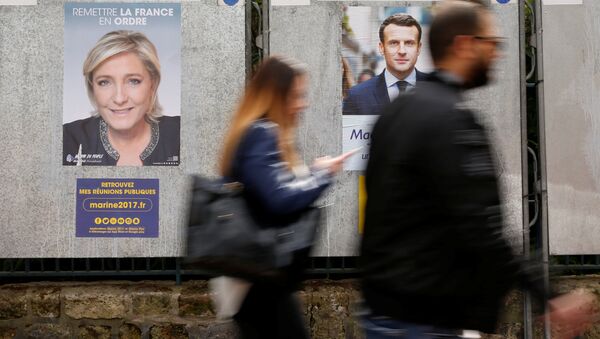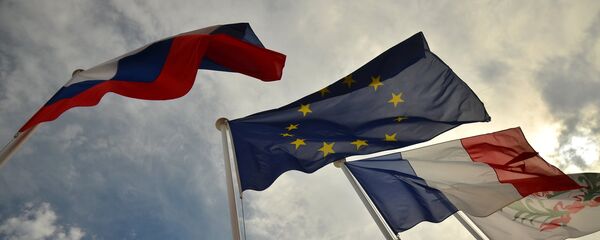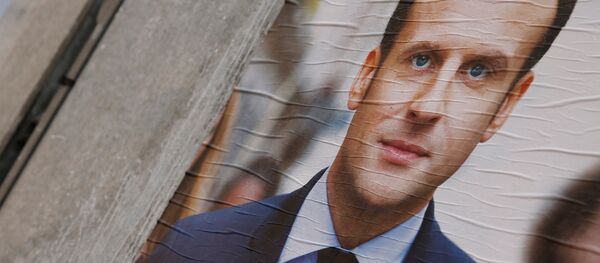“It is not for a political party to decide which media are allowed to exercise their democratic duty in our society,” said the petition signed by representatives for journalists at Agence France-Presse (AFP) Le Monde and Le Figaro dailies, TF1 and BFM television channels as well as France Info radio.
During a regular briefing on Thursday Russian Foreign Ministry Spokeswoman Maria Zakharova dubbed Macron team’s decision to deny Sputnik and RT access to the second round of elections as “deliberate and bare-faced discrimination against Russian media by the presidential candidate of a state that has historically been vigilant when it comes to free speech.”
“We are calling upon dedicated international agencies and the French authorities to pay attention to the infringement of media rights during this presidential election and prevent any such violations happening during the second round in May,” Zakharova emphasized.
Vincent Christian, a CFTD union repersentative at La Voix du Nord, is one of the few journalists who agreed to talk to Sputnik France.
Although critical of Sputnik, he still said that “the National Front is not the only one which does this – all political parties do this.”
“What shocks me even more than what (the National Front and En Marche!) did, is that they do not let us shoot, preferring just to hand out their photos and pre-recorded videos. Everyone is doing this,” Vincent complained.
Dominique Pradalie, General Secretary of Syndicat national des journalistes, described the National Front as a longtime enemy of journalists.
He added that suppressing speech freedoms and preventing journalists from doing their job is “absolutely undemocratic.”
When told about the decision by Emmanuel Macron’s campaign managers to blacklist Sputnik, Dominique Pradalie said nothing like this had ever happened before.
“Locking out a French or foreign agency with just a stroke of a pen is both impermissible and irregular,” he emphasized.
Thierry Oberlé, who heads the Society of Le Figaro journalists, said he was equally unaware of the fact that Sputnik and RT had been blacklisted by Macron’s campaign headquarters.
A formal response from the French Foreign Ministry said that in France journalists are free to exercise their professional duties.
“However, unlike in other countries, there is no system of official accreditation of all media organizations covering elections, and each candidate is free to work with the press the way he or she deems fit,” the statement said.
In the first round vote on April 23, Emmanuel Macron received 24.01 percent of the vote, more than any other candidate.
Marine Le Pen, the right-wing populist leader of the National Front, came in second with 21.53 percent. Both are now preparing for the second round, which is to be held on May 7.
Macron and Le Pen succeeded in defeating the center-right candidate Francois Fillon, who won 19.91 percent of the vote, as well as the radical leftist Jean-Luc Melenchon, who took 19.64 percent.
Never miss a story again — sign up to our Telegram channel and we'll keep you up to speed!




